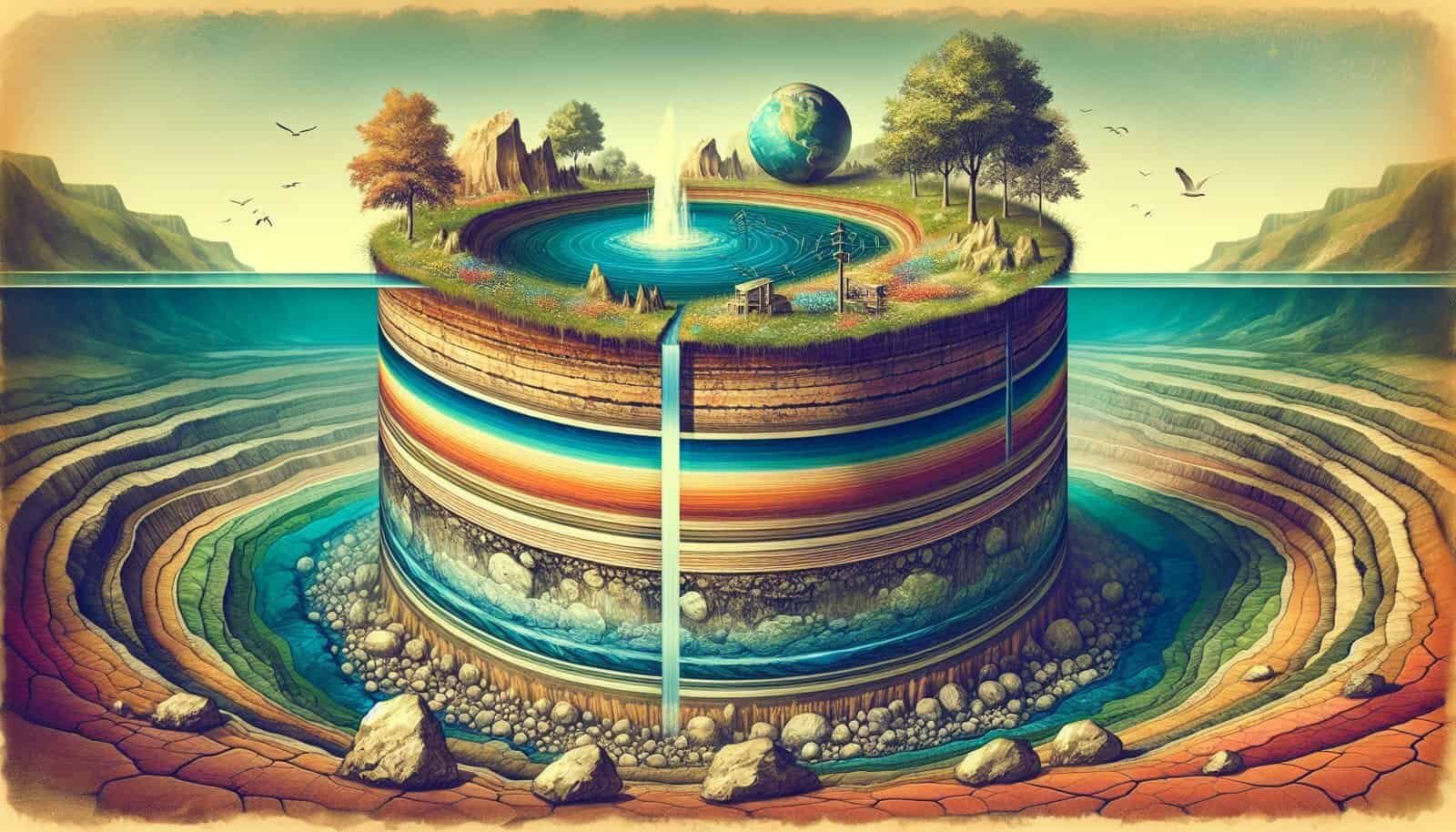Do you often find yourself wondering about the complexities of groundwater management and whether you can learn more about it online? Groundwater management might sound like a deep, mysterious topic encased in technical jargon, but it’s actually a fascinating and critical field, especially for well owners and those involved in environmental conservation. With the proliferation of online education, you might also be pondering if there are effective online courses available that cater specifically to this field. Lucky for you, this topic marries the accessibility of digital education with the essential knowledge that groundwater management entails.
Understanding Groundwater Management
What is Groundwater Management?
Before diving into the realm of online learning, it’s crucial to grasp the basics of what groundwater management actually involves. Groundwater management refers to the strategies and processes implemented to sustainably use and preserve groundwater resources. This often includes monitoring the quantity and quality of groundwater, managing its extraction for various uses, and implementing practices to prevent or mitigate pollution.
By effectively managing groundwater resources, we ensure that there’s enough water available for agricultural, industrial, and personal uses without depleting or contaminating the source. It’s all about balance and sustainability.
Why is Groundwater Management Important?
The significance of groundwater cannot be overstated. It serves as a key source of drinking water and is vital for irrigation and industrial applications. Mismanagement can lead to over-extraction, which may cause severe environmental damage such as land subsidence and decreased water quality. Through proper management, we can avoid these adverse outcomes and develop strategies to replenish and conserve groundwater for the future.
Challenges in Groundwater Management
Groundwater management presents its own set of challenges, tracked by changing environmental conditions and varying policy frameworks across the globe. Issues like climate change, pollution, and increased demand for water resources make sustainable groundwater management more complex. Understanding these challenges is vital for anyone interested in pursuing courses on this topic, as it allows for the development of practical, effective solutions.
Exploring Online Courses
The Rise of Online Education
Over the past decade, online education has become an increasingly popular mode of learning. Thanks to technological advancements, anyone interested in expanding their knowledge can access a plethora of courses offered by universities, professional organizations, and online platforms, all from the comfort of their own homes.
Reputable Platforms for Learning
When it comes to finding credible online courses about groundwater management, certain platforms are particularly worth noting:
Coursera: Known for its extensive library of courses from top universities, Coursera offers courses on water resources management and related fields.
edX: Similar to Coursera, edX provides a range of courses in environmental science, including those focused on groundwater.
Udemy: This platform offers more general courses in hydrology that touch upon groundwater topics, usually available at a lower cost.
FutureLearn: Offering a more global perspective, FutureLearn hosts courses on sustainable water management and hydrology.
Khan Academy: While not specific to groundwater, it offers foundational courses in science that are beneficial for beginners.
Exploring Specific Courses
Let’s look at some specific courses that delve into groundwater management:
“Introduction to Water Management” on Coursera: Offered by the University of Geneva, this course covers the fundamentals of water management which includes an extensive section on groundwater.
“Hydrogeology – The Role of Groundwater in the Environment” on EdX: Hosted by Rice University, this course focuses on the role of groundwater in larger environmental contexts.
“Sustainable Urban Water Management” on Udemy: This course helps understand urban water resources, with an important segment on groundwater management.
These courses vary in complexity, price, and duration, catering to different levels of expertise and interest.

Course Content Breakdown
Fundamental Concepts Covered
Whether you’re aiming for a basic understanding or an in-depth analysis, courses generally cover these key areas:
- Hydrological Cycle: Understanding how groundwater fits within the larger water cycle.
- Aquifer Systems: Study of various aquifer types and their significance.
- Water Quality: Aspects of maintaining groundwater quality amid pollution threats.
- Regulatory Frameworks: Overview of policies governing groundwater management.
Skill Development
Completing a course in groundwater management equips you with several critical skills:
- Analytical Skills: Analyzing data related to water levels, quality, and usage.
- Problem-solving Abilities: Developing solutions for issues like aquifer depletion.
- Technical Proficiency: Using tools and software common in the field.
- Regulatory Knowledge: Understanding frameworks governing water use.
Practical Applications
These courses often incorporate real-world case studies, helping bridge theoretical knowledge with practical applications. You’d learn to apply these skills to manage groundwater resources sustainably, perhaps even implementing what you’ve learned in your community.
Target Audience
Who Should Enroll?
While these courses are accessible to everyone, certain groups might find them especially beneficial:
- Well Owners: Understanding groundwater management empowers well owners to better manage their personal water resources.
- Environmental Science Students: Courses provide a solid foundation in a critical aspect of environmental studies.
- Policy Makers and Planners: Knowledge in groundwater management aids in creating effective policies and plans.
- Sustainability Enthusiasts: Those passionate about sustainability will find value in understanding groundwater resource challenges.
Beginner to Advanced Pathways
Courses are generally designed with different starting points in mind. Beginners can start with foundational courses, while those with some background might proceed directly to advanced or specialized topics. This progression allows you to tailor your educational journey based on your prior knowledge and career goals.

Ensuring Quality and Credibility
Accredited Online Courses
When selecting a course, it’s important to ensure that it’s offered by an accredited institution. Accreditation guarantees that the course adheres to high educational standards, providing quality information and recognized certification upon completion. Many universities offer their courses on platforms like Coursera and edX, making their well-recognized credentials accessible globally.
What to Look For in a Course
Make sure to consider the following factors when evaluating courses:
- Course Provider Reputation: Is the institution reliable and well-regarded in the field?
- Instructor Expertise: Check the credentials and experience of those teaching the course.
- Curriculum Relevance: Does the curriculum cover the topics you’re interested in?
- Student Reviews: Feedback from past students can provide insights into the course’s effectiveness.
Time Commitment and Costs
Understanding Time Commitment
One of the significant advantages of online learning is the flexibility it offers. Most courses provide estimates on how much time you should dedicate each week, often ranging from 1 to 5 hours. This flexibility means you can learn at your own pace, fitting into your schedule as you see fit.
Analyzing Costs
Costs for online courses vary widely:
- Free Courses: Platforms like Coursera often offer free versions of their courses, though without certification.
- Paid Certificates: Paid versions provide a verified certificate of completion and access to all course features.
- Full Degree Programs: Some platforms offer full programs for those seeking more comprehensive learning, but these come at a higher cost.

Maximizing Your Learning
Interactive and Engaging Content
Look for courses that incorporate various forms of media and interaction, such as videos, quizzes, and forums. Engaging content keeps you motivated and boosts comprehension.
Utilize Discussion Forums
Discussion forums can be an extremely valuable resource. They allow you to interact with fellow learners, share insights, and ask questions. This kind of community interaction can enrich your learning experience and provide networking opportunities.
Apply What You Learn
To solidify your understanding, try to apply what you’ve learned to real-world scenarios. Whether it’s participating in local water conservation projects or simply managing your well more effectively, applying your knowledge makes learning practical and memorable.
Future Prospects and Career Opportunities
Career Pathways
Groundwater management knowledge can lead to various career opportunities:
- Water Resource Specialist
- Environmental Consultant
- Policy Advisor
- Researcher in Hydrology
These roles are varied but all contribute to the overarching goal of sustainable water use and conservation.
Rising Demand for Expertise
With increasing environmental challenges and global water scarcity issues, the demand for experts in groundwater management and water resource management continues to rise. Pursuing this path not only offers a fulfilling career but also contributes positively to global sustainability efforts.

Conclusion
In a world where environmental sustainability is becoming increasingly crucial, understanding and effectively managing groundwater resources is more important than ever. Online courses offer an accessible and flexible way for you to gain valuable knowledge and skills in groundwater management without the constraints of traditional classroom settings. Whether you’re a well owner seeking practical advice or someone interested in a career in environmental management, the world of online learning provides the tools and resources you need to explore this essential field. As you consider your options, remember to evaluate courses based on quality, content, and cost to ensure a rewarding educational experience. With the right course, you’ll be well-prepared to navigate the challenges of groundwater management in a sustainable and informed manner.
